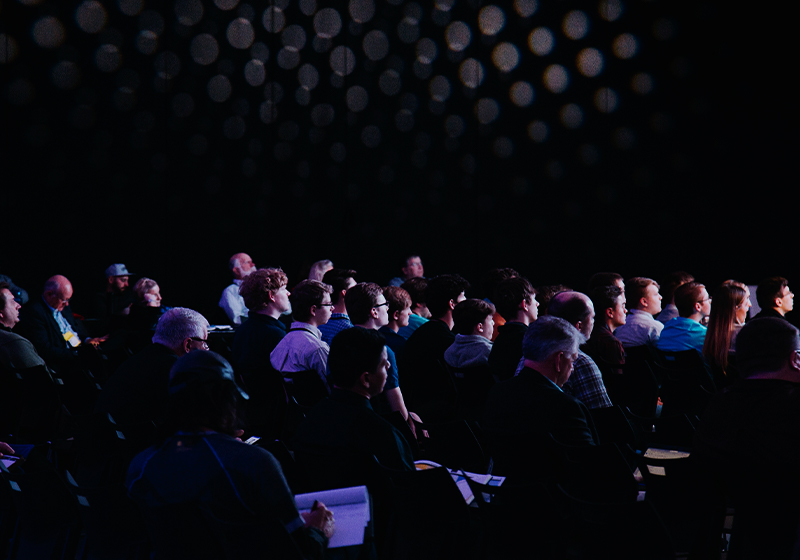 De janeiro a março de 2024 acontecerá o Escola de verão - IM-UFRJ
De janeiro a março de 2024 acontecerá o Escola de verão - IM-UFRJ
Minicursos Confirmardos:
Introdução na teoria de controle ótimo e equações de Hamilton - Jacobi - Erwin Topp (IM-UFRJ)
Um breve passeio pelas interseções entre música, matemática e estatistica - Hugo Tremonte de Carvalho (IM-UFRJ)
Introdução às matemágicas - Bernardo Nunes Borges de Lima (ICEX - UFMG)
Superficies minimas - Haimer Alexander Trejos Serna (UERJ)
Activated Random Walks on Z°- Leonardo Trivellato Rolla (IME-USP)
Confira a Programação completa AQUI.
 Local do evento: Instituto de Física da UFF - sala 201 Av. Gal. Milton Tavares de Souza, s/no. Campus da Praia Vermelha. Niterói, RJ, Brasil
Local do evento: Instituto de Física da UFF - sala 201 Av. Gal. Milton Tavares de Souza, s/no. Campus da Praia Vermelha. Niterói, RJ, Brasil
Nosso próximo encontro do COLMEA será no dia 25 de outubro (quarta-feira) no IF-UFF. Na ocasião teremos a seguinte programação:
14:00h - Alexis Hernández Nuñez (IF - UFRJ) - "Modelling how social network algorithms can influence opinion polarization"
15:40h - Taiane Coelho Ramos (IC - UFF) - "O que é neurociência computacional?"
Todos são muito bem-vindos.
Mais informações sobre o COLMEA podem ser encontradas AQUI.
Resumo: Modelling how social network algorithms can influence opinion polarization - Alexis Hernández Nuñez (IF - UFRJ)
The study of opinion dynamics in online social networks has garnered considerable attention in recent years. Numerous researchers have proposed models to simulate the communication process that mediates these dynamics. Such models consider users and their friendship relations as nodes and edges in a network, where the communication process takes place. Here, we present a model that considers not only the dynamic resulting from individuals’ behaviors but also the influence of the social network algorithm. The proposed model simulates communication in an online social network, in which randomly created posts represent external information. Users and friendship relations are encoded as nodes and edges of a network. The dynamic of information diffusion is divided into two processes, referred to as "post transmission" and "post distribution", representing the users’ behavior and the social network algorithm, respectively. Individuals also interact with the post content by slightly adjusting their own opinions and sometimes redefining friendships. Our results show that the dynamic converges to various scenarios, which go from consensus formation to polarization. Importantly, friendship rewiring helps promote echo chamber formation, which can also arise for particular networks with well-defined community structures. Altogether, our results indicate that the social network algorithm is crucial to mitigate or promote polarization.
Resumo: O que é neurociência computacional? - Taiane Coelho Ramos (IC - UFF)
A neurociência computacional é uma área em desenvolvimento e tem contribuído com os avanços das pesquisas em saúde. Técnicas computacionais nos possibilitam entender o funcionamento do cérebro, procurar por biomarcadores para doenças mentais e elaborar sistemas de auxílio ao diagnóstico que sirvam de suporte à prática clínica. Neste seminário vamos introduzir alguns conceitos fundamentais do funcionamento e anatomia cerebral, principais técnicas de coleta de dados anatômicos e funcionais do cérebro humano e técnicas computacionais para análise desses dados.
Atenciosamente,
O comitê organizador:
Americo Cunha (UERJ)
Evaldo M. F. Curado (CBPF)
João Batista M. Pereira (UFRJ)
Leandro P. R. Pimentel (UFRJ)
Maria Eulalia Vares (UFRJ)
Nuno Crokidakis (UFF)
Roberto I. Oliveira (IMPA)
Simon Griffiths (PUC-Rio)
Yuri F. Saporito (FGV EMAp)
 De 2 de outubro até 16 de novembro de 2023 estarão abertas as inscrições para o processo seletivo para o Mestrado e o Doutorado em Estatística no nosso programa, Turma 2024-1. São oferecidas 20 vagas para o Mestrado e 10 vagas para o Doutorado.
De 2 de outubro até 16 de novembro de 2023 estarão abertas as inscrições para o processo seletivo para o Mestrado e o Doutorado em Estatística no nosso programa, Turma 2024-1. São oferecidas 20 vagas para o Mestrado e 10 vagas para o Doutorado.
O edital pode ser acessado AQUI.
O programa recebe bolsas das agências CNPq, CAPES e FAPERJ. Nos últimos anos, quase todos os alunos matriculados em dedicação exclusiva receberam bolsa de estudos. Estamos com boa disponibilidade de bolsas de doutorado.
O programa desenvolve pesquisa em Estatística e Probabilidade. Para informações sobre as linhas de pesquisa AQUI.
 Título: "Percolação: entre demônios e sequências binárias"
Título: "Percolação: entre demônios e sequências binárias"
Palestrante: Oscar Fernando Antezana Llaullipoma
Data: 20/10/2023,
Horário: 10:30h
Sala: C119
Orientadora: Maria Eulália Vares
Banca:
Maria Eulália Vares (presidente) IM/UFRJ
Bernardo Nunes Borges de Lima (UFMG)
Daniel Ungaretti Borges (PPGE, UFRJ)
Leandro Pinto Rodrigues Pimentel (PPGE, UFRJ)
 Title: One dimensional contact process with modified border conditions.
Title: One dimensional contact process with modified border conditions.
Speaker: Enrique D. Andjel.
Date: 02/10/2023
Horário: 3:30 p.m. to 4:30 p.m (Rio de Janeiro local time).
Local: C116 - Bloco C - CT – Instituto de Matemática – UFRJ. There will be no transmission online.
Abstract: In this joint work with Leonardo Rolla we study a one-dimensional contact process with two infection parameters. One of these parameters gives the infection rates at the boundaries of a finite infected region and the other one gives the rates within that region. We prove that the critical value of each of these parameters is a strictly monotone continuous function of the other parameter. We also show that if one of these parameters is equal to the critical value of the standard contact process and the other parameter is strictly larger, then the infection starting from a single point has a positive probability of surviving.
More complete information about the seminars can be found at HERE
Sincerely,
Organizers: Giulio Iacobelli e Maria Eulalia Vares.
